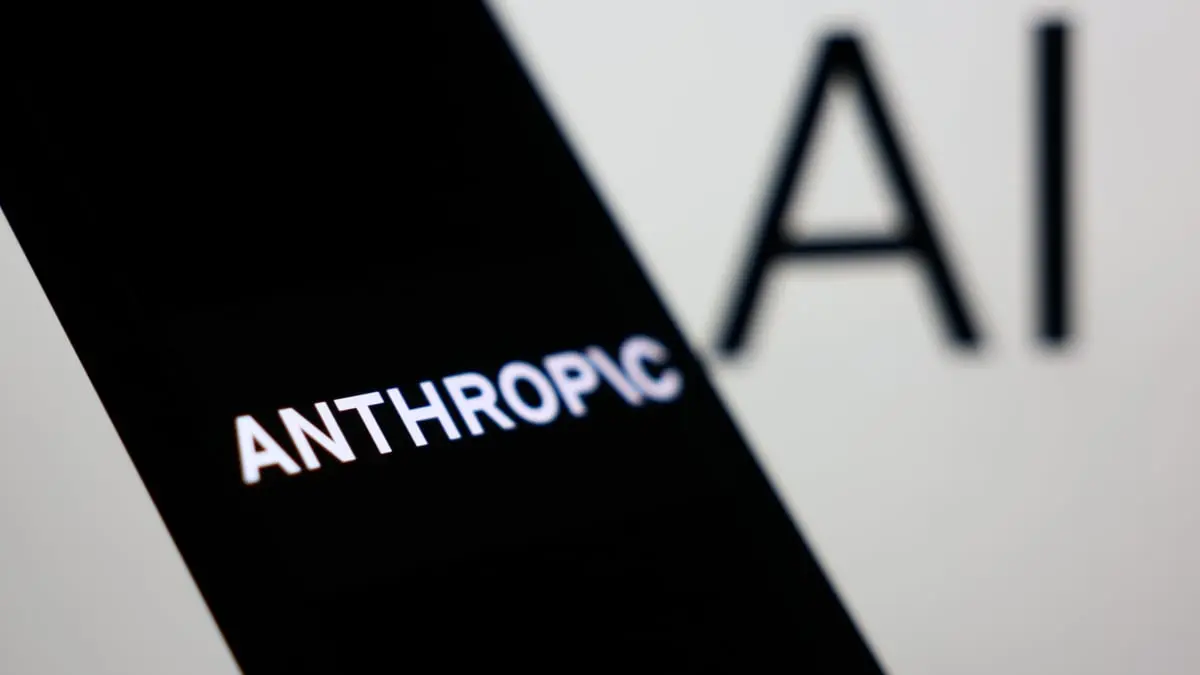AI-Powered Stock Picker Gains Regulatory Approval in Israel
2 Sources
2 Sources
[1]
AI startup gets green light for stock picking chatbot
Service due to roll out later this month, despite fears AI will crash the market AI has driven the stock market into a hype-fueled frenzy, and an Israeli startup has even convinced regulators to let its chatbot hallucinate an investment portfolio on your behalf. Developed by Tel Aviv-based Bridgewise, the chatbot is set to launch later this month in partnership with Israel Discount Bank after the startup received regulatory approval from the Israeli Securities Authority (ISA), Bloomberg reports. Before you get too worried about an AI chatbot going rogue and cratering your retirement fund, it's worth noting that Bridgewise's chatbot won't make financial decisions on its own - at least, not yet. The AI chatbot is designed only to offer stock-picking advice. Speaking during Calcalist's AI conference on Tuesday, Discount Bank EVP Asaf Pasternak explained the Stocktalk chatbot service will address growing demand among its customers for in-depth and on-demand financial analysis. "One of the areas where customers need the most information to make decisions is investment management: two thirds of people trust an algorithm more than a human to manage their money, and 98 percent of our clients want a digital recommendation on their portfolio at least once a month," the banking exec was quoted as saying by Calcalist Tech. The chatbot is reportedly built on three separate models - including a pair of language models used for data mining and interacting with the user, and a stock rating model responsible for decision making. Together these models will apparently be capable of providing background information on specific firms, summarizing recent financial disclosures, and, of course, recommending stocks to buy or sell based on current market conditions. Whether those recommendations are any good remains to be seen. Bridgewise reportedly plans to expand the offering to include annual forecasts, integrate earnings transcripts, and even put together entire investment portfolios based on users' preferences. However, at least for now, the chatbot's regulatory approval is subject to several conditions - including rules barring it from giving personalized advice, a company spokesperson told Bloomberg. While the Israeli government is cool with letting AI chatbots loose on financial markets, the US Securities and Exchange Commission head Gary Gensler isn't exactly thrilled about the potential chaos the models could cause. As we reported late last year, Gensler issued a chilling warning: AI will end up crashing the stock market, it's only a matter of when. It's "nearly unavoidable," unless regulators take action now to limit the use of AI, he opined. Much of Gensler's fear is rooted in the possibility that one too many investment groups could end up relying on the same model and dataset, resulting in a kind of herd mentality informing buying and selling decisions. The SEC is said to be working to establish limits on the application of AI to financial markets, in a bid to prevent such a collapse. ®
[2]
A Chatbot That Gives Stock Buy, Sell Advice Cleared by Israel
An Israeli regulator has cleared an artificial intelligence startup to launch a chatbot that offers stock-picking advice in partnership with a large bank, even as other governments have raised alarms that AI might destabilize financial markets if used widely in investing. Tel Aviv-based Bridgewise has been given the green light by the Israel Securities Authority (ISA) to release a chatbot called Bridget later this month that can offer recommendations for which stocks to buy and sell in response to user queries. The startup is working with one of the country's largest banks, Israel Discount Bank, to roll out the product. It plans to expand to a second Israeli bank's investment platform in the coming months. The move represents a significant -- and controversial -- milestone for generative AI. While global financial institutions have increasingly embraced chatbots for research and customer service in the nearly two years since OpenAI launched ChatGPT, regulators have been wary of the risks of deploying this technology for retail investing. Gary Gensler, chair of the US Securities and Exchange Commission, warned this month that there could be a financial crisis in the future if too many brokers and money managers relied "on the same model, the same algorithm, the same data." Similarly, the European Central Bank said that using a handful of AI systems for investing decisions could cause "herding behaviour or bubbles." As with many AI uses, there are also concerns that artificial intelligence can hallucinate -- or make up information -- in response to investor queries. A spokesperson for the Israeli regulator said the approval came with restrictions. The tool cannot include advice "that is specific to the user," for example, or have a conversation that appears to be "personal advice." The spokesperson directed Bloomberg News to correspondences between the agency and Bridgewise. In the exchange, the regulator laid down several other conditions for approval, including that the company offering such an AI tool must have an investment license, be compensated on a fixed rate rather than based on how well the investments do, and abide by basic conflict of interest rules. Founded in 2019, Bridgewise uses AI trained on historical data combined with real-time news to provide investment analysis to brokerages, wealth advisors and exchanges, including the Nasdaq, the London Stock Exchange and the Tel Aviv Stock Exchange. The company said its new chatbot has taken years of work to develop and has gone through significant testing to ensure the advice is accurate. "It's ChatGPT, but with a financial edge," said Gaby Diamant, chief executive officer of Bridgewise. "We've done everything in a calculated way, with the regulators involved end to end. Being the first to launch this has placed a huge burden on us." Investors can query the bot for recommendations on thousands of stocks, asking whether to sell Alphabet Inc. shares or find out which semiconductor stocks are its top Buy recommendations. In a test of a beta version of the tool, a Bloomberg reporter asked for the five best stocks to buy that day. The chatbot promptly responded with a list of five companies, including reasons for buying each. Some popular general-use chatbots like ChatGPT will sum up risks and background information about companies, but stop short of providing investing picks. When asked by a reporter if they should buy or sell Alphabet stock, ChatGPT replied that it could not offer buy and sell recommendations. Diamant said the risks in using the AI tool for buying and selling stocks are "similar to any investment decisions a trader makes on advice from any bank or trading entity." When testing the chatbot, its responses included a disclaimer about the service's limitations. "The information is not tailored to you specifically and is not a substitute for personal investment advice," the disclaimer said.
Share
Share
Copy Link
Israel's securities regulator approves an AI-powered chatbot for stock advice, marking a significant step in the integration of AI in financial services. The move raises questions about the role of AI in investment decisions and its potential impact on the market.

Israel Approves AI Chatbot for Stock Advice
In a groundbreaking move, Israel's securities regulator has given the green light to an artificial intelligence-powered chatbot that provides stock buying and selling advice
1
. This decision marks a significant milestone in the integration of AI technology into the financial services sector, potentially reshaping how investors make decisions in the stock market.The AI Stock Picker: Capabilities and Limitations
The approved AI chatbot, developed by Tiptipot Technologies, utilizes natural language processing to analyze vast amounts of financial data and provide personalized stock recommendations to users
2
. While the system can process complex market information rapidly, it's important to note that it does not have real-time learning capabilities. Instead, it relies on periodic updates to its knowledge base, ensuring a level of stability in its decision-making process.Regulatory Safeguards and Transparency
Israel's Securities Authority (ISA) has implemented several measures to ensure the responsible use of this AI technology. The chatbot is required to disclose its AI nature to users and must provide explanations for its recommendations
1
. Additionally, the system is prohibited from learning from user interactions to prevent potential manipulation or biased advice.Market Impact and Investor Behavior
The introduction of AI-powered stock advice raises questions about its potential impact on market dynamics. While the chatbot aims to democratize access to sophisticated financial analysis, there are concerns about how it might influence investor behavior and market volatility
2
. Some experts argue that widespread adoption of such tools could lead to more informed decision-making, while others worry about the risks of herd mentality if too many investors rely on similar AI-driven advice.Related Stories
Global Implications and Future Outlook
Israel's approval of an AI stock picker could set a precedent for other countries considering similar technologies. As AI continues to advance, regulators worldwide are grappling with how to balance innovation with investor protection
1
. The success or failure of this initiative in Israel could significantly influence the global regulatory landscape for AI in financial services.Challenges and Ethical Considerations
Despite the potential benefits, the use of AI in stock picking raises ethical concerns. Questions about accountability, bias in AI algorithms, and the potential for market manipulation remain at the forefront of discussions
2
. As this technology evolves, ongoing scrutiny and regulatory oversight will be crucial to ensure its responsible implementation and to maintain market integrity.References
Summarized by
Navi
[1]
Related Stories
ChatGPT-Powered Trading Bot Outperforms Market in High School Student's Experiment
31 Jul 2025•Technology

Investing.com Launches WarrenAI: A Game-Changing AI-Driven Financial Research Tool for Retail Investors
22 Apr 2025•Business and Economy

MIT's Andrew Lo Predicts AI Will Manage Investments Within Five Years
23 Jul 2025•Business and Economy

Recent Highlights
1
French Police Raid X Office as Grok Investigation Expands to Include Holocaust Denial Claims
Policy and Regulation

2
OpenAI launches Codex MacOS app with GPT-5.3 model to challenge Claude Code dominance
Technology

3
Anthropic releases Claude Opus 4.6 as AI model advances rattle software stocks and cybersecurity
Technology





